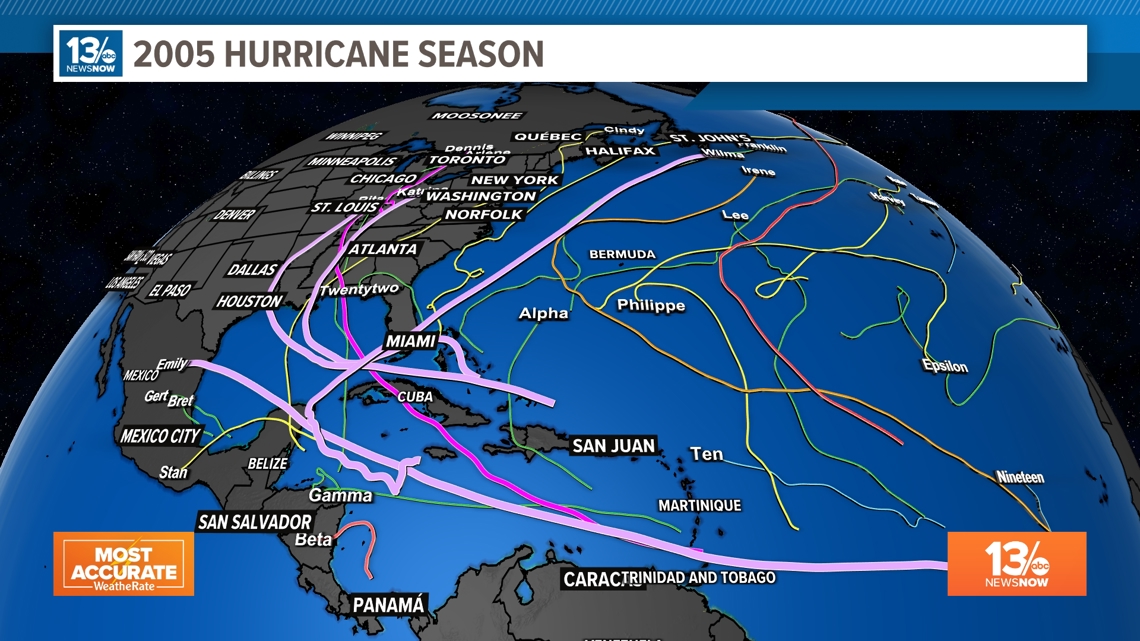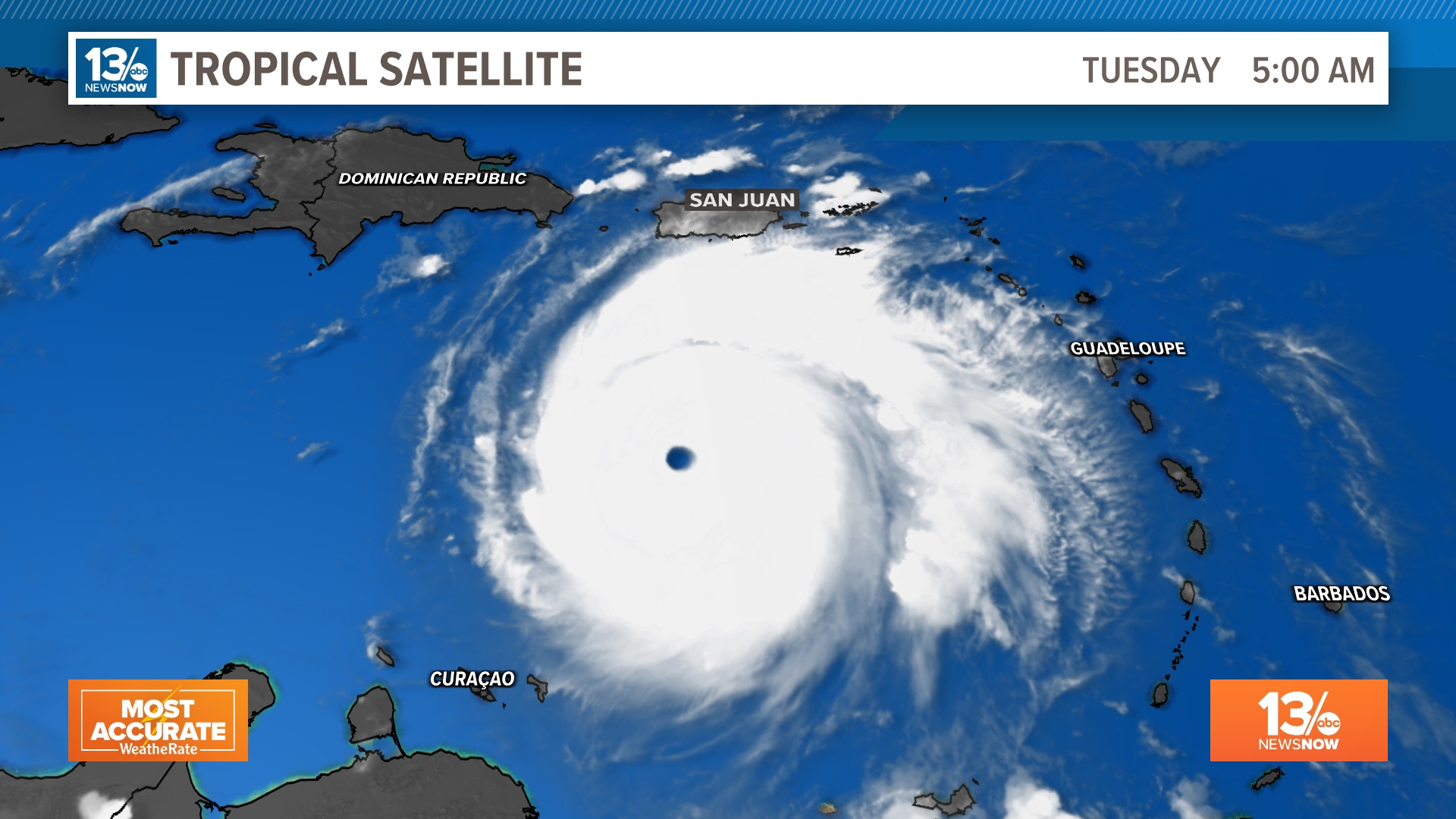NORFOLK, Va. — Last Sunday morning when reconnaissance aircraft crisscrossing Hurricane Beryl detected winds of 130 mph, the storm became the first Category 4 hurricane on record to ever form in the month of June in the Atlantic Basin.
We've never seen a Cat 4 so early in a season; the previous record for the earliest Category 4 belonged to Hurricane Dennis, back on July 8, 2005.
RELATED: 13News Now Hurricane Guide
As Beryl strengthened to a Cat 5 late Monday evening, the next record fell. It is now the earliest Category 5 hurricane to form in a season. This record was previously held by Hurricane Emily, when it reached that strength on July 16, 2005.
As you can imagine, 2005 turned out to be a hyperactive hurricane season for the Atlantic Basin. With record-warm sea surface temperatures, 2024 is forecast to be a hyperactive season as well.
Of note in 2005, it was the second most active Atlantic hurricane season in recorded history, and the most extreme since we've been able to use satellites to track the storms.
There were 28 tropical systems during the season, using up all the names on the predetermined list, and forcing the use of six Greek letters to identify the later storms by name. A record 15 tropical storms attained hurricane strength, with seven of those becoming major hurricanes. Six hurricanes made landfall or near-landfall in the U.S., including the devastating Hurricanes Katrina, Rita, and Wilma.


For Hampton Roads, that hurricane season really wasn't horrible. What was left of Cindy passed by far inland, bringing rain to the Commonwealth. Our biggest scare in 2005 came from Ophelia, as the storm was centered south of the North Carolina Outer Banks near Cape Hatteras. It eventually scooted eastward a bit and then moved off the northeast, keeping the worst of the system offshore.
We can't say for sure whether we will get hit with a hurricane or tropical storm in Hampton Roads this season, but with so much tropical activity anticipated in 2024, now is the time to get prepared.
RELATED: 2024 Atlantic Hurricane season has begun: What you should know ahead of potential storms in Virginia

